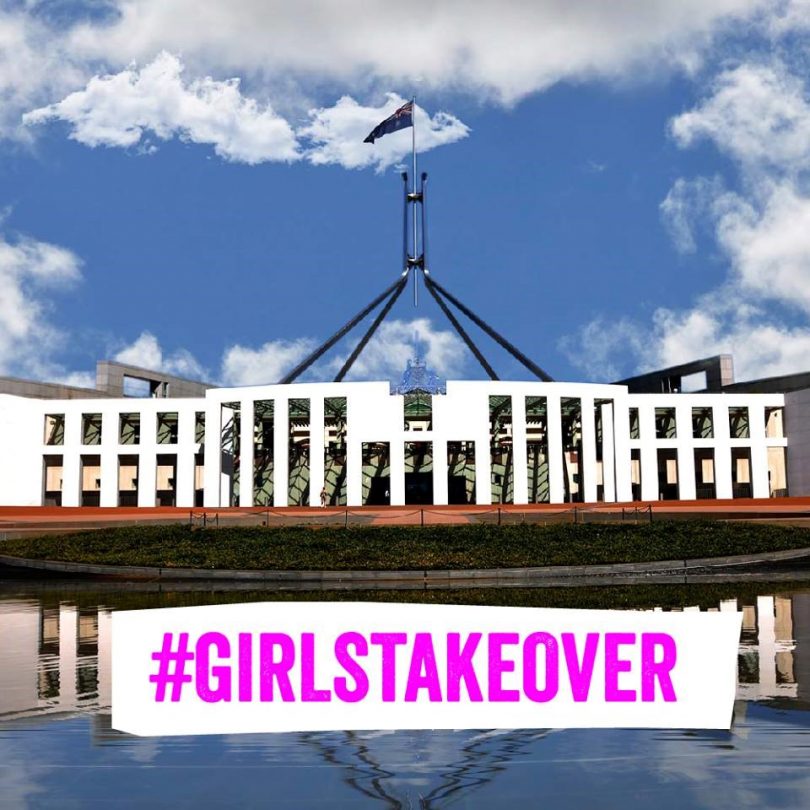
Girls take on governance roles as #GirlsTakeover Parliament in Capital Hill.
So often we hear that young people don’t care about politics. Often older citizens lament with comments like ‘they are tuned out’, ‘they are too cynical’ or ‘they are just too absorbed with social media to be involved’.
However, whenever I have even a brief encounter with young people I am amazed, inspired and excited by their passion, enthusiasm, and commitment to getting involved and influencing decision-making.
The latest example of the drive of young women is happening in just under a week when young women in Canberra participate in the #GirlsTakeover Parliament Program, part of Plan International’s global #GirlsTakeover initiative. As part of the commemoration of International Day of the Girl on 11 October 2017, 600 takeovers in 60 countries will take place across the world. Canberra will be one of the locations where this action is occurring.
This initiative is a bit cheeky – a mix between activism and professional development, with a hint of a demand – as these #GirlsTakeover and create a platform in a space they often have difficulty accessing.
In Canberra, this activism will be occurring in both the Legislative Assembly and Federal Parliament. This program is being led by two local young women – Caitlin Figueiredo and Ashleigh Streeter – who have convinced local members of our Legislative Assembly and members of our Federal Parliament to be involved and commit to a multipartisan message that our Local and Federal Parliaments are “committed to defending the rights and potential of young women and girls.”
On 11 October, young women will take over the offices of local representatives from across party lines, with participants including Nicole Lawder MLA, Yvette Berry MLA, Tara Cheyne MLA, Elizabeth Lee MLA and Caroline Le Couteur MLA. On 18 October, young women will enter Federal Parliament and occupy the offices of 19 Parliamentarians from every political party. During this time, the young women will shadow the politicians for the day and present these representatives with Plan International Australia’s national report on how to increase the participation of young women in political decision-making.
While in the ACT we have achieved a balance in gender representation, we have some way to go in Federal Parliament. Currently, in Australia, a mere 28.6% of federal politicians (43 out 150) are female, although women comprise of approximately 50% of the population.
There has been support for the program, with the overwhelming response coming from female politicians who appear much more attuned to the need to champion gender equity. There are however some male champions who will participate in the federal part of the program including Senator Simon Birmingham from the Liberal Party, Greens leader Senator Richard Di Natale, Hon Bill Shorten and Hon Andrew Leigh MP from the Labor Party and Senator Nick Xenophon and Senator Stirling Griff from the Nick Xenophon Team.
Having young women experience the life of a politician, even for a day, will inspire and challenge them. I suspect they will be teachers as well as students during this process, as they bring new ideas, question practices that make little sense today and demonstrate all they have to contribute to the art of politics.
I have argued that inclusion programs are important to respond to the reality that certain groups in our community are excluded from the benefits of our community. I also think there is an important place for activism, and the sharing of spaces with people who are often locked out of them. What do you think?












